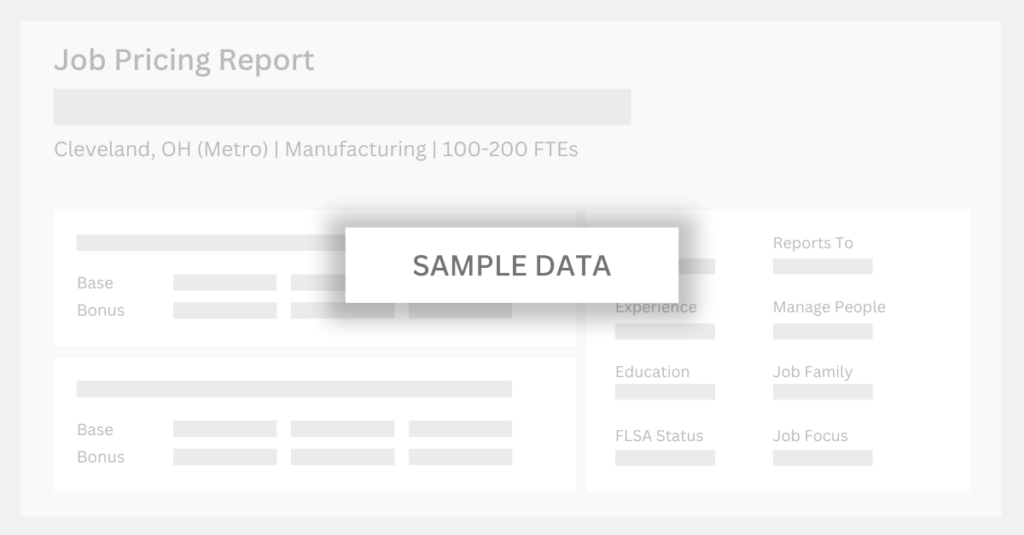Compensation Data for an Application Developer in Ohio

Compensation data breakouts:
- Location (example: Cleveland, Akron, Ohio, National)
- Company Size (number of full-time employees)
- Industry (industry-specific or all industries)
- Years of Experience
- Education
Data included in each report:
- Base Compensation (Salary or Wage)
- Total Compensation
- Bonus
- Long-term Incentives
- Job Description
- Competencies/Skills
Get a Free Sample Report
Submit the form below to receive a sample job pricing report or to access ERC’s compensation data.

ERC is a leading provider of compensation data
Whether you’re actively recruiting and hiring or trying to stay competitive, having local salary and wage data is critical. ERC members gain access to compensation reports, job description research, and an HR Help Desk for compensation and workplace practices data.
Job Description
Overview
- Programs computers.
- Develops, runs tests, and maintains current computer programs that provide instructions computers must follow to perform their function.
- Develops, designs, and tests logical structure for solving problems by computers.
- Writes programs according to specifications, which may be provided by Software Engineers, Systems Analysts, or other computer scientists.
- Updates, repairs, modifies, and expands existing computer programs.
- This position is distinguished from Programmer Analyst as this position may not include or involves a lesser degree of structured analysis, impact and compatibility analysis, cost analysis, computer capability analysis, feasibility studies, and user/customer interface.
Typical Functions
- Converts data from project specifications and statement of problem and procedures to create or modify computer programs, applying knowledge of programming techniques and computer systems.
- Prepares, or receives from systems analyst or other computer scientist, flowcharts and diagrams to illustrate sequence of steps program must follow and to describe logical operations involved.
- Analyzes workflow chart and diagram, applying knowledge of computer capabilities, subject matter, and symbolic logic.
- Confers with supervisor and representatives of departments concerned with program to resolve questions of program intent, data input, output requirements, and inclusion of internal checks and controls.
- Reads manuals, periodicals, and technical reports to learn ways to develop programs that meet user requirements.
- Formulates plan outlining steps required to develop program, using structured analysis and design.
- Submits plans to user for approval.
- Designs computer terminal screen displays to accomplish goals of user request.
- Converts project specifications, using flowcharts and diagrams, into sequence of detailed instructions and logical steps; and codes language that can be processed by computer, applying knowledge of computer programming techniques and computer languages.
- Enters program codes into computer system.
- Inputs test data into computer.
- Observes computer monitor screen to interpret program operating codes.
- Reads computer printouts or observes display screen to detect syntax or logic errors during program test, or uses diagnostic software to detect errors.
- Corrects program errors using methods such as modifying program or altering sequence of program steps.
- Recreates steps taken by user to locate source of problem and rewrites program to correct errors.
- Analyzes, reviews, and rewrites programs to increase operating efficiency or to adapt program to new requirements.
- Compiles and writes documentation of program development and subsequent revisions.
- Writes instructions to guide operating personnel during production runs.
- Writes manual for users to describe installation and operating procedures.
- Assists users to solve operating problems.
- May work with Systems Analyst to obtain and analyze project specifications and flowcharts.
- May install and test program at user site.
- May monitor performance of program after implementation.
- May specialize in developing programs for business or technical applications.
- May train workers to use program.
- May assist Computer Operator to resolve problems in running computer program.
Similar Positions
There are several positions that share similar responsibilities to an Applications Developer, including:
- Software Developer
- Web Developer
- Mobile App Developer
- Front-End Developer
- Back-End Developer
- Full-Stack Developer
- Software Engineer
- Systems Analyst
Experience and Education
The amount of experience required for an Applications Developer can vary depending on factors such as the complexity of the applications they develop, the industry they work in, and the specific job requirements.
Generally, a bachelor’s degree in computer science or a related field is preferred, along with a solid foundation in programming languages and software development principles.
Entry-level positions may be available for recent graduates or those with limited experience, where they can gain hands-on experience and further develop their skills.
Mid-level positions typically require a few years of experience, demonstrating proficiency in application development and a track record of successful projects.
Senior-level or lead roles often require significant experience, with a deep understanding of software architecture, advanced programming concepts, and the ability to mentor and guide junior developers. Continuous learning, keeping up with industry trends, and staying updated with the latest technologies are essential for Applications Developers at all levels.
Competencies and Skills
- Programming Languages
- Software Development Lifecycle
- Problem-Solving and Analytical Thinking
- Application Architecture and Design
- Database Management
- Web Technologies
- Version Control Systems
- Testing and Debugging
- Communication and Collaboration
FAQ
The terms “Applications Developer” and “Software Developer” are often used interchangeably, but there are some general distinctions. Applications Developers focus on developing specific applications for targeted functions or user needs, specializing in areas like web or mobile app development. Software Developers have a broader scope, working on various software systems and may specialize in different aspects like application development, database management, or system integration. Applications Developers build software directly used by end-users, while Software Developers may create tools or frameworks for other developers. However, these distinctions can vary across organizations, and job titles should be considered within specific contexts.
Applications Developers and Web Developers are distinct specializations within software development. Applications Developers create software applications for various platforms, including desktop, mobile, and embedded systems, using languages like Java, C#, Python, or Swift. They design platform-specific user interfaces and work with integrated development environments (IDEs) tailored for multi-platform development. Web Developers, on the other hand, specialize in building web-based applications and interfaces using web technologies such as HTML, CSS, and JavaScript, focusing on browser compatibility and utilizing web-centric development environments. While Applications Developers have a broader platform focus, Web Developers concentrate specifically on web-based application development.
Through frequent polls and surveys, ERC offers a comprehensive collection of recent, reliable data covering workplace practices, employee compensation, benefits, wages, and salaries from local, regional, and national samples.
While “free” compensation data can be found on the web, here’s why you should be cautious:
- Validity — Often “free” salary data is collected from anyone willing to participate or share information. This means you don’t have a good sense of how big the sample size is, the geography of the data, or the type or size of organizations from which the data is being collected.
- Recency — ERC’s survey data relies on regular and consistent participation to ensure that the data is recent, while “free” pay data sources may provide data that is many years old.

